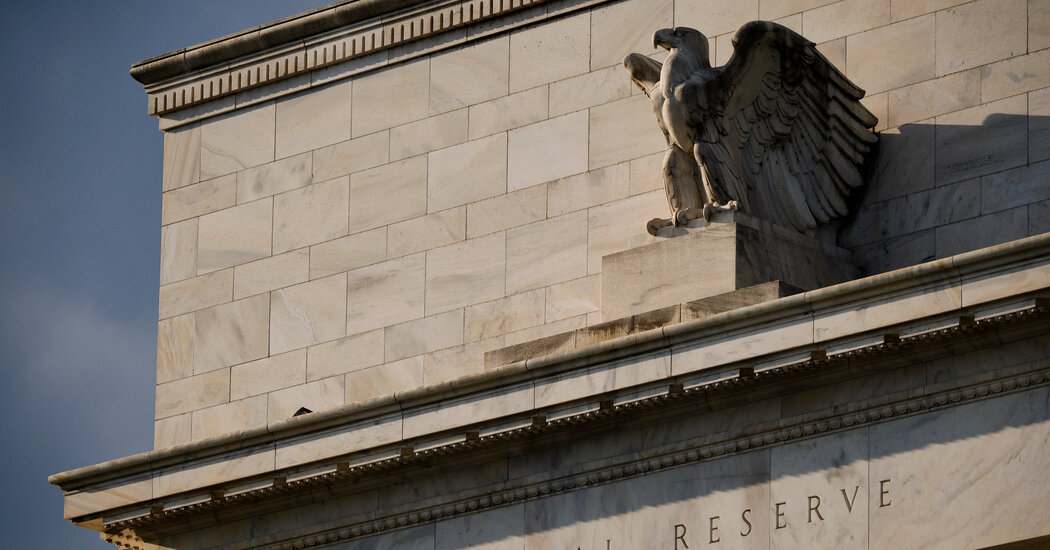All the reporting these days is about rising prices. And I get that: A 7 percent surge in the Consumer Price Index over the past year comes as a shock, especially because so many people, myself included, didn’t see it coming.
But there’s another story that should be getting more attention: America’s extraordinary success in limiting the damage from a horrifying pandemic. In fact, there’s a good chance that in retrospect we’ll view economic management over the past two years as a policy triumph, despite the inflation spike.
I wrote about some of this in my newsletter last week, but I think more needs to be said.
As I pointed out in that newsletter, unemployment has lately been falling as fast as it did during the Reagan-era “morning in America” recovery. What I want to do now is put the recovery in some broader historical context.
Early in the pandemic many observers feared that we were about to experience a replay of the 2008 financial crisis, only worse. There were, in fact, a couple of weeks in March 2020 when the financial system teetered on the edge of collapse. But the Federal Reserve pulled us back from the brink.
Even as the financial crisis receded, however, there were widespread fears that recovery from the pandemic recession, like recovery from the Great Recession, would be sluggish. Economic forecasters surveyed in the spring of 2020 expected the average unemployment rate in 2022 to be above 6 percent. In fact, it’s already down to 3.9 percent, only slightly higher than before the coronavirus struck.
Jason Furman, a former top Obama economist, has suggested a useful way to compare recessions: Look at the cumulative unemployment they produce. If the unemployment rate exceeds its prerecession level by one percentage point for one year, that’s a “point-year” of excess unemployment. So how many point-years of unemployment did the pandemic inflict, and how does that compare with the past?
For trivial technical reasons, my estimates differ a bit from Furman’s, but the message is the same: The Covid-19 recession did remarkably little damage, considering. The costs of the Great Recession were huge — more than 20 point-years — not just because unemployment soared but also because it lingered. Thanks to rapid recovery, the costs of the coronavirus slump were far smaller — around seven point-years. Even though the initial shock to the economy was devastating, the eventual hit to unemployment from a deadly, disruptive disease was comparable to (by my numbers, somewhat smaller than) the hit we suffered after the technology bubble of the 1990s burst.
That is, Covid-19 may have cost fewer jobs than the dot-com bust.
Some of this success story reflected underlying economic fundamentals; for the record, I argued early on that we would have a rapid recovery because the slump wasn’t preceded by private-sector excesses. But large-scale public spending, especially the bipartisan CARES Act in 2020 and the American Rescue Plan in 2021, also surely helped.
But what about inflation? There’s no question that we could have had lower inflation right now if we’d accepted a slower employment recovery. But would that have been a trade-off worth making?
The clear answer is that restoring full employment was more important than avoiding inflation if — a big if — inflation eventually subsides.
Here’s why: Although it’s true that inflation erodes real incomes, there’s overwhelming evidence that maintaining full employment is extremely important for reasons that go beyond money. Jobs bring in income; but they also, for many workers, bring dignity, so that being unemployed damages happiness far more than you can explain simply by the lost dollars.
And full employment is especially crucial for the young: Graduating into a bad labor market can cast a shadow over your career for many years, possibly your whole life.
So getting America back to full employment as quickly as possible was urgent, and well worth it even if the price was putting us through, say, two years of elevated inflation.
The counterargument is the fear that inflation will be hard to get rid of, that it will become entrenched in economywide expectations and that getting it back down will require another nasty recession down the line. And I can’t offer a 100 percent guarantee that this won’t happen.
At this point, however, there is little evidence that inflation is getting entrenched. The bond market is implicitly forecasting high inflation this year but not beyond; the point isn’t that the market is necessarily right, but rather that one important measure of inflation expectations shows no sign that people are betting on a return to the 1970s. Consumer surveys tell a similar story: High expected inflation over the next year, but much less over the next five years, which is implicitly a forecast of returning normalcy.
So far, then, we seem to be looking at an extraordinarily quick economic recovery from a devastating economic shock, coming at the cost of an unpleasant but probably temporary surge in inflation. And given what could have happened, that amounts to a policy triumph.
The Times is committed to publishing a diversity of letters to the editor. We’d like to hear what you think about this or any of our articles. Here are some tips. And here’s our email: letters@nytimes.com.
Follow The New York Times Opinion section on Facebook, Twitter (@NYTopinion) and Instagram.


























